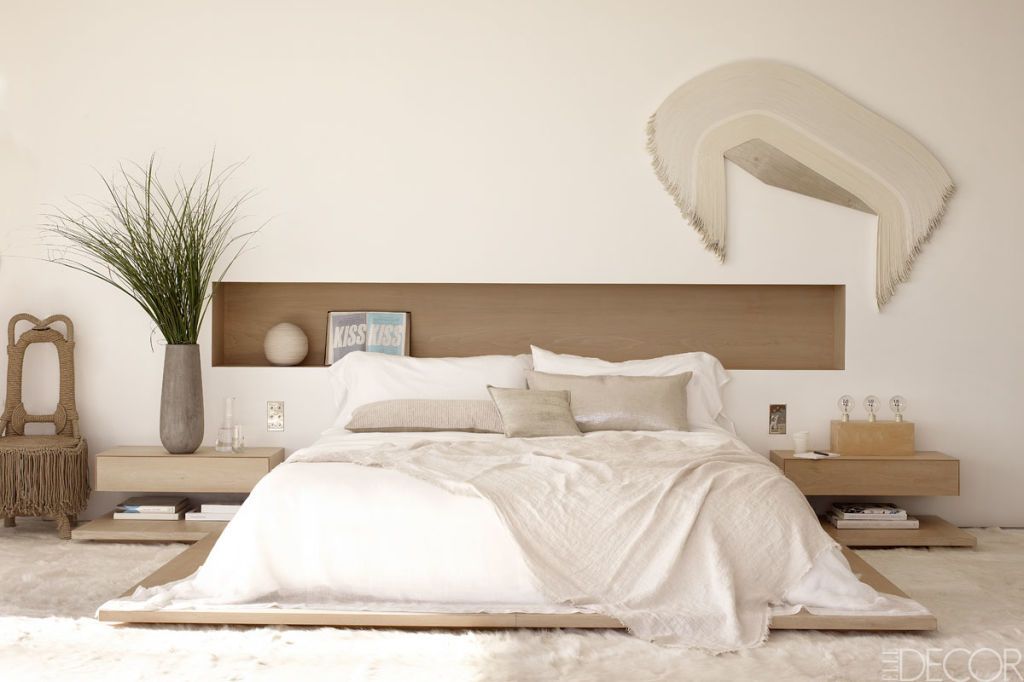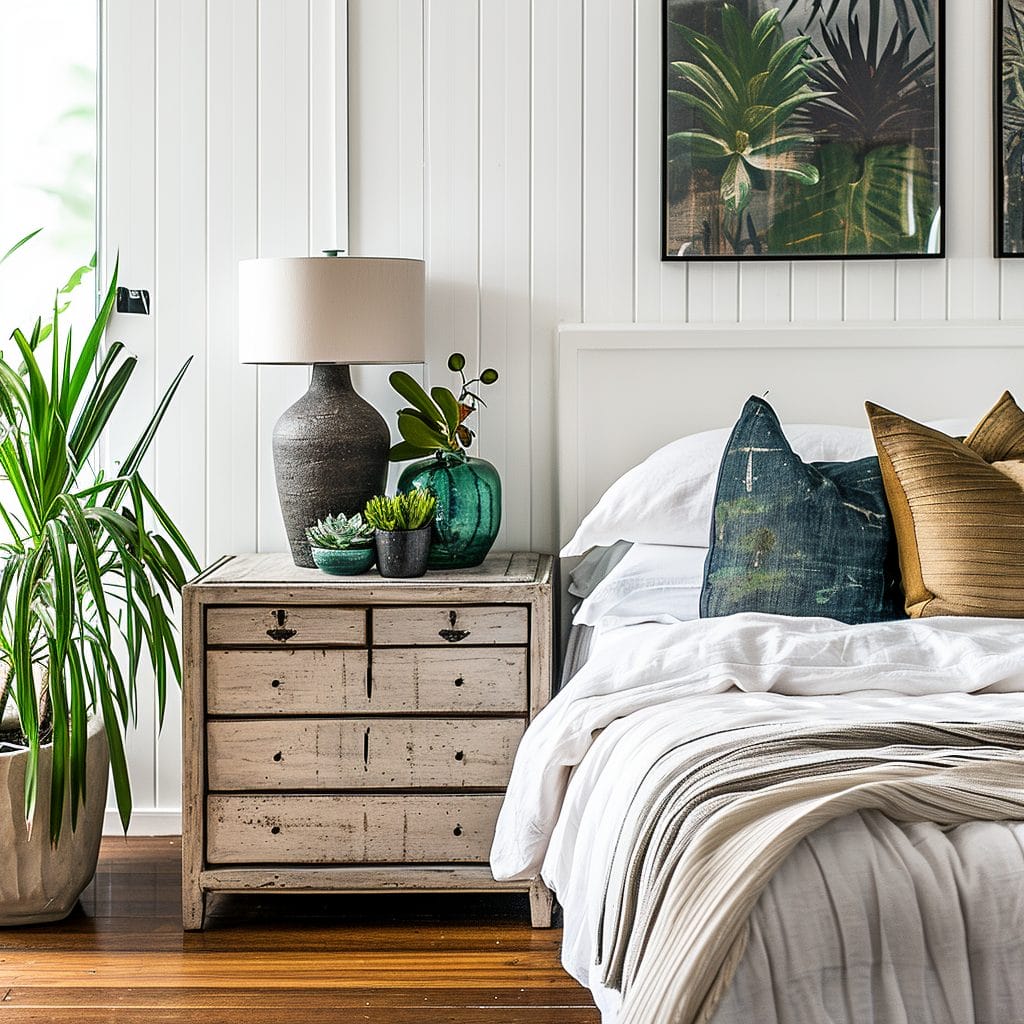
Introduction To Feng Shui
Feng Shui bedroom creates a harmonious and balanced environment, promoting better sleep and overall well-being. It involves strategic placement of furniture and mindful decor choices.
Creating a Feng Shui bedroom involves optimizing the layout to enhance positive energy flow. Start by positioning your bed in a commanding position, ideally against a solid wall and diagonal to the door. Avoid placing the bed directly in line with the door, as it disrupts energy balance.
Use soft, muted colors to create a calming atmosphere. Keep the space clutter-free, as clutter obstructs energy flow and can cause stress. Incorporate natural elements like plants and crystals to enhance tranquility. Focus on symmetry by having matching nightstands and lamps on either side of the bed, promoting harmony in relationships.

Feng Shui is an ancient Chinese practice. It focuses on the flow of energy. This energy is known as Chi. The goal is to create harmony in spaces. Good Chi can improve health and happiness. Bad Chi can cause problems. Simple changes can bring good Chi into your home.
The bedroom is a place for rest. Good Feng Shui here is very important. It can help you sleep better. It can also improve your relationships. The right placement of furniture is key. Avoid clutter to let Chi flow freely. Use soft colors for a calming effect. Keep the bed away from the door.
Choosing The Right Bed
Place your bed away from the door. This helps you feel safe. Align the bed with the wall. Leave space on both sides. This improves energy flow. Avoid placing the bed under a window. This can cause restless sleep. Keep the bed away from mirrors. They reflect energy and can disturb rest.
A solid bed frame is best. It gives strong support. Choose a headboard that is sturdy. This provides stability. Avoid metal bed frames. They can disrupt energy flow. Wooden frames are ideal. They promote a warm atmosphere. Make sure the bed is of good quality. It should be comfortable and supportive.
Leave a Comment / Bedrooms / By ashrafsalman
Color Schemes
Creating a harmonious Feng Shui bedroom involves using soft, soothing color schemes. Opt for gentle hues like pastel blues, greens, and earthy tones to promote relaxation.
Calming Colors
Choose soft blues and gentle greens. These colors promote relaxation and peaceful sleep. Light pinks and lavenders can also create a calm atmosphere. Avoid bright colors in the bedroom.
Avoiding Harsh Tones
Steer clear of bold reds and vibrant yellows. These colors can increase energy and make it hard to relax. Dark colors like black and dark brown can feel heavy. Instead, opt for neutral tones like beige and off-white.
Furniture Arrangement
Arrange your bedroom furniture to harmonize energy flow according to Feng Shui principles. Position the bed diagonally from the door for better rest. Minimize clutter to enhance tranquility.
Optimal Layouts
Place the bed against a solid wall. Avoid placing the bed under windows. Ensure there is space on both sides of the bed. Position nightstands on each side. Keep the path to the door clear. Arrange the furniture to promote easy movement.
Avoiding Clutter
Keep the room tidy and clutter-free. Store items out of sight. Use storage solutions like boxes and bins. Ensure surfaces are clean and clear. Remove unnecessary furniture and decorations. Maintain an organized and peaceful environment.
Balancing Elements
Creating a Feng Shui bedroom involves balancing elements to promote harmony and relaxation. Incorporate natural materials, soft lighting, and soothing colors for a serene atmosphere.
Incorporating The Five Elements
Each of the five elements is important. These elements are wood, fire, earth, metal, and water. Wood brings growth and creativity. Fire adds passion and energy. Earth offers stability and nourishment. Metal provides clarity and focus. Water brings calmness and wisdom. Use these elements to create harmony in the bedroom.
Balancing Yin And Yang
Yin and Yang must be in balance. Yin represents calm and coolness. Yang stands for energy and warmth. Too much Yin makes the room dull. Too much Yang makes it too active. Use soft lighting for Yin. Use bright colors for Yang. Balance both for a perfect bedroom.
Lighting And Ambiance

Natural light is very important in a bedroom. It can make the room feel fresh and bright. Open the windows during the day. This lets in sunlight and fresh air. Use light curtains to let in even more light. Avoid heavy, dark curtains. They can block out the natural light.
Use soft, warm lights in the bedroom. These lights create a calm atmosphere. Place lamps on nightstands for reading. Avoid harsh, bright lights. They can make it hard to relax. Use dimmers to control the light level. This helps set the right mood. Also, add some candles for a cozy feel.
Enhancing Air Quality
Open windows every day. Fresh air is important. It helps remove stale air. Use a fan if needed. Fans help air to move. Clean the fan often. Dust can block the airflow. Use an air purifier. It removes tiny particles. This makes the air cleaner.
Place plants in your room. They clean the air. Spider plants are great. They are easy to care for. Peace lilies also help. They remove harmful chemicals. Keep the plants healthy. Water them regularly. Remove dead leaves. This keeps them strong.
Personal Touches
Personal items can make a bedroom feel unique. Family photos and favorite books add warmth. Choose items that bring joy and peace. Avoid clutter; keep things simple and tidy. A clean space feels more welcoming.
Soft lighting creates a calm environment. Candles and dimmable lamps are great choices. Use light colors for bedding and curtains. Natural materials like wood and cotton promote relaxation. Play soft music or nature sounds for extra tranquility. Make sure air flows well for freshness.
Common Mistakes
A bedroom should feel calm. Too much furniture can make it feel small. Clutter can block good energy. It’s best to keep the space open. Only keep what you need. Less is more in a Feng Shui bedroom.
Cleanliness is key. Dust can block good energy. Broken items should be fixed. A tidy room promotes peace. Make sure everything is in its place. A well-kept room helps you sleep better.
Frequently Asked Questions
What Is Feng Shui In The Bedroom?
Feng Shui in the bedroom involves arranging furniture and decor to promote balance and harmony. It enhances rest and positive energy flow.
How To Position A Bed For Feng Shui?
Place the bed against a solid wall, away from doors, and ensure you have a clear view of the entrance. Avoid placing it under windows.
What Colors Are Best For A Feng Shui Bedroom?
Neutral tones like beige, soft whites, and pastels are ideal. These colors create a calming and peaceful environment.
Can Plants Be Used In A Feng Shui Bedroom?
Yes, but choose small, non-spiky plants. They should be placed in moderation to avoid overwhelming the space.
Conclusion
Creating a Feng Shui bedroom can transform your sleep and energy. Use the tips shared to design a peaceful space. Balance elements and declutter for harmony. Your bedroom should be a sanctuary of relaxation. Start today and feel the difference.
A well-organized space promotes better rest and well-being.
